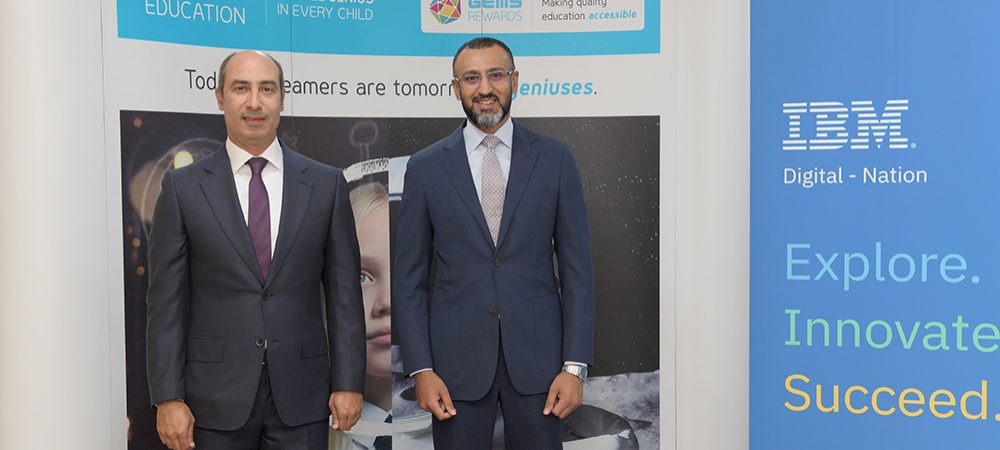GEMS Education has announced its collaboration with IBM to launch a pilot programme introducing IBM Digital – Nation platform. Delivered on IBM Cloud, the platform is designed to offer advanced knowledge and skills in key emerging technologies to over 2,000 students and 70 teachers across the United Arab Emirates.
Through this initiative, GEMS Education students will have access to over 75 different courses comprising over 250 hours of learning. The platform will provide a range of programmes, with a focus on highly sought-after advanced IT skills in future and emerging technologies, such as Artificial Intelligence (AI), Blockchain, cloud, coding, Internet of Things (IoT), quantum computing, data science and analytics, and cybersecurity.
The courses will be offered at three levels – Explorer, Innovator and New Collar – and will be run both as part of the school curriculum and as individual courses that students can take in their own time. Successful completion of each course will earn students IBM digital credentials that will help enhance their university applications and CVs. Each student and teacher will also have their own account with full access to all the necessary tools to create and innovate new solutions.
Digital – Nation Platform is part of IBM’s global push to close the digital skills gap and empower youth with the most in-demand skills, helping them become digital-ready. The platform has an additional functionality of scanning local job recruitment portals and suggesting opportunities relevant to students’ learning mastery and progress.
Michael Gernon, Chief Education Innovation Officer, GEMS Education, said: “This collaboration with IBM provides a world-class opportunity for GEMS Education students to learn about the latest developments in technology and how they will impact the society of the future. We are fully committed to bringing the very best experiences and opportunities to our students, ensuring they are optimally prepared for the future.
“The courses we are offering are grounded in real-world learning and make practical use of the latest technology and tools with a view to improving our world. As each course is also assessed, students will be able to build their knowledge and skills, enhance their solutions and receive IBM digital credentials for their work. This is a truly game-changing opportunity in education and one that’s exclusive to GEMS Education schools.”
The use of the emerging technologies is rapidly growing. According to an IBM Institute for Business Value (IBV) study, as many as 120 million workers in the world’s 12 largest economies may need to be retrained or reskilled as a result of AI and intelligent automation in the next three years. The study also shows that the time it takes to close a skills gap through training has increased by more than 10 times in just four years and that new skills requirements are rapidly emerging, while other skills are becoming obsolete.
“Technology is embedded in every facet of our everyday lives. It is imperative for technology leaders to not only bring these technologies safely to the world but also equip societies and the workforce with the skills needed to keep up with today’s fast-paced innovation and disruption,” said Hossam Seif El-Din, Vice President, Enterprise and Commercial, IBM Middle East and Africa. “
Through access to open standards, best practices, IBM tools and course materials, Digital – Nation will provide a holistic approach to close the digital skills gap, enable digital competence and nurture innovation within our society. The collaboration between IBM and GEMS Education is a testament to the importance of innovation and equipping future leaders with the necessary skills and capabilities to excel in the workplace.”
A comprehensive approach, such as the one provided through IBM Digital – Nation platform, is therefore needed to address this challenge – one that involves reskilling through development that is personalised to the individual. Learning and innovation are closely associated, underlining the importance and necessity of close collaboration between academia and industry in order to introduce new ways of learning through specialised educational materials and tools.
Click below to share this article

